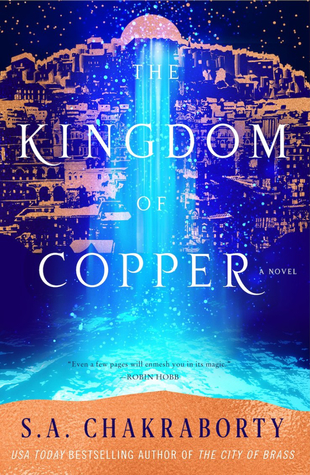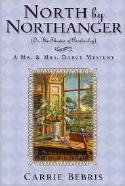This review contains affiliate links, which earn me a small commission when you click and purchase, at no extra cost to you. Thank you for supporting my small business and allowing me to continue providing you a reliable resource for clean book ratings.
Nahri’s life changed forever when she accidentally summoned Dara during one of her con schemes and was whisked from her home in Cairo to Daevabad, the mighty city of the djinn.
Nahri understands she must forge a new path for herself in the city of Daevabad and embrace her heritage, but she knows it’s only a shadow life she lives, and she is little more than a player in a larger con. She’s become trapped in a gilded cage, watched by a king who rules from a throne that once belonged to her family, and one misstep will doom not just herself but her entire tribe.
Meanwhile, Ali is adrift on the sands of his ancestral land. Exiled by her father and hunted by assassins, he is forced to rely on the frightening abilities the marid — treacherous water spirits — have given him. However, in doing so, he uncovers a terrible secret his family has long kept buried, and the truth is not easy to accept.
As Daevabad struggles to regain its feet in the dark aftermath of a devastating battle, a new threat brews in the north. A dangerous force heads for the city’s gates, including a warrior trapped between worlds and desperate for a peace he fears he will never deserve.
In the second book of the Daevabad Trilogy, which started with The City of Brass, readers are once again immersed in the rich world-building of the djinn city. Lands that once remained largely unexplored are fleshed out even more, and mythologies are expanded upon. However, while the story is as lush and captivating as the first book, it teeters on being too complex, with countless bloodlines, feasts, festivals, and glimpses of other tribes’ cultures and customs. Luckily, I buddy-read this with a friend and she was able to help me sort through the details so things could sort of make sense.
One thing I did love about this book, though, is the complexity of the characters. Nahri is as sharp-tongued and independent as ever, but with the passage of time and her experience among the djinn, I felt her character regressed. Suddenly, we were introduced to a woman who was older and worn down by life.
Also, while I disliked Ali for much of the first book, he quickly became a favorite character — one of the few in the trilogy who is honorable and maintains a sense of justice. However, despite his genuine care and empathy, even Ali has a dark past and brutal side.
Side characters also made a stronger play in the story: mainly Muntadhir, Zayab and Jamshid. The antagonists should not be left out, as they have their own horrifying and redeeming qualities as well.
When it comes down to it, the world of Daevabad is harsh and morally gray, and there are no innocent characters. It’s a dark, complicated fantasy book that’s not for the faint of heart, though a true fantasy lover may really adore the chance to immerse themselves in the complexity of the tale, its culture and the memorable characters.
Rated: High. There are around 7 uses of strong language and just under 50 uses of mild language. Violence is high, with talk of magical torture and of people enslaved for being “lesser.” Innocent people, including many women and children, are murdered, and the story features a massacre. There is much bloody confusion and brutal death as the city is laid waste. In the way of sexual content, a husband is known to sleep around with men and women. He is discovered drunk with two women in his bed. Two men kiss.
Click here to purchase your copy of The Kingdom of Copper on Amazon.




